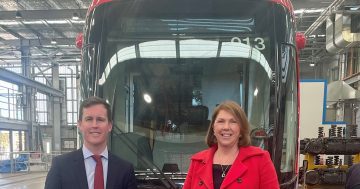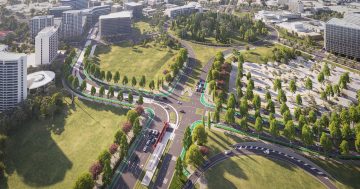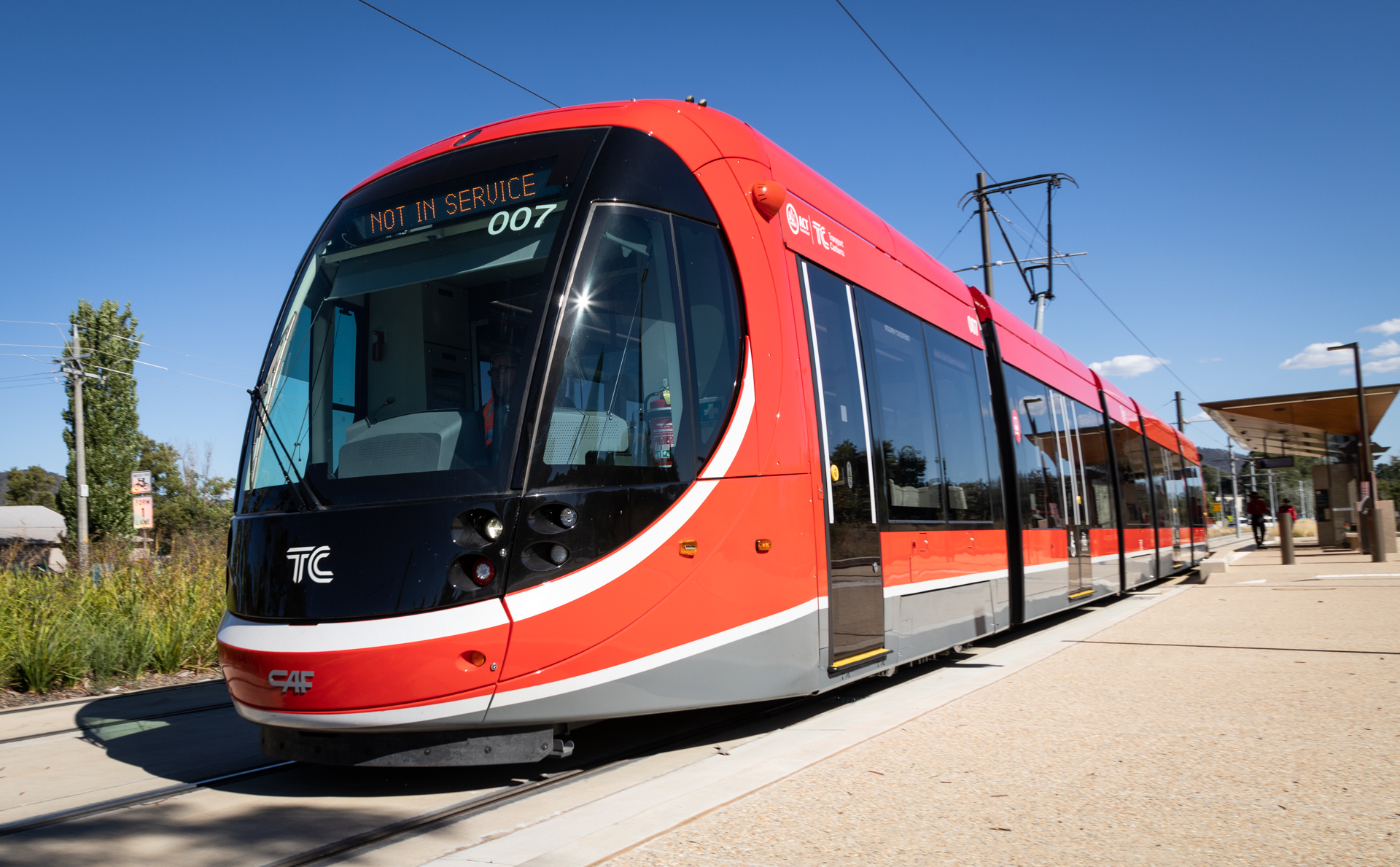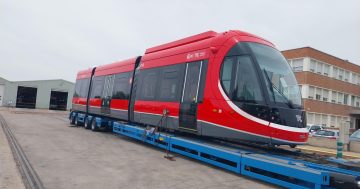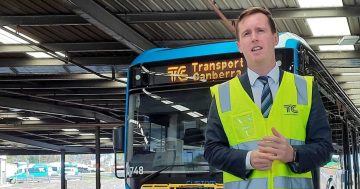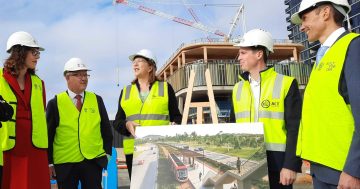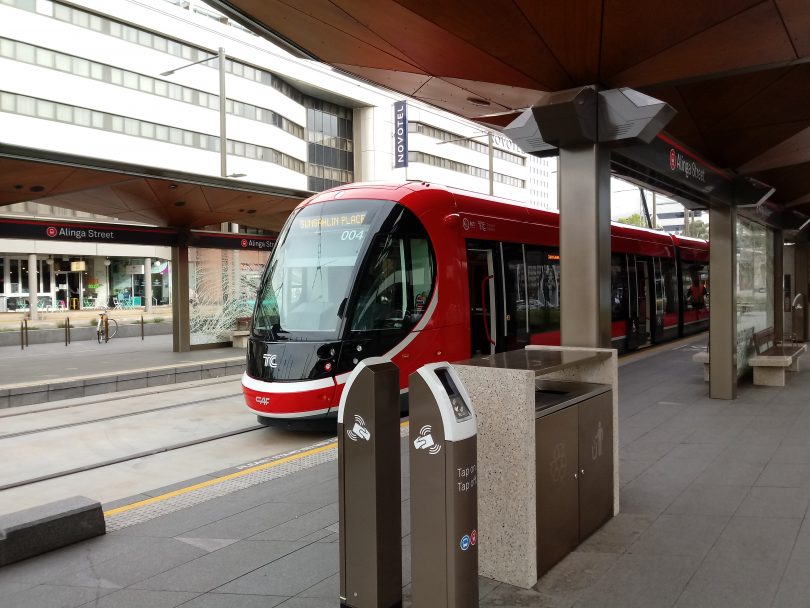
The extension of light rail next year could hinge on the ACT election outcome. Photo: File.
The Canberra Liberals have thrown the future of Light Rail Stage 2 into doubt by refusing to commit fully to the project ahead of the October election and questioning the government’s approach.
The Opposition responded to news that the Stage 2A contract had been delayed by uncertainties associated with the coronavirus pandemic by claiming the government had mismanaged the entire process, and calling for the complete business case to be released so taxpayers could see the costs and benefits of the project for themselves.
Asked where he stood on Stage 2, Opposition Leader Alistair Coe said the Liberals supported the extension of light rail in principle but would not back the project as it is without knowing all the pros and cons.
”It’s very hard to make any commitment when the government refuses to reveal this information,” Mr Coe said.
The stance means Canberrans look like going into yet another election in which light rail will be a flashpoint, with Transport Minister Chris Steel hitting back by saying Liberals’ entrenched opposition to light rail should be a concern to Canberrans who want to see more investment in public transport.
He said the government had been advised not to show its hand during its negotiations with Canberra Metro, the consortium which delivered Stage 1 and was chosen to construct Stage 2.
”Letting them know how much we’re prepared to spend on light rail is not the best approach from a commercial contract negotiation point of view,” he said.
Mr Coe refuses to accept this explanation, saying the government has only itself to blame for picking a winner and not being able to get contracts signed and clinch a good deal.
He said the government should have put the project out to open tender instead of sticking with the same consortium.
”They didn’t open it up to transparency and scrutiny, and now they’re saying that despite them picking a winner, after offering a multi-billion contract to one consortium, despite them picking a winner, there are still stumbling blocks.”
Mr Coe would not answer questions about whether a Liberal Government would review the project, revert to an open tender process or not proceed at all.
All he would say is that the Liberals were committed to honouring any contracts signed before the election.
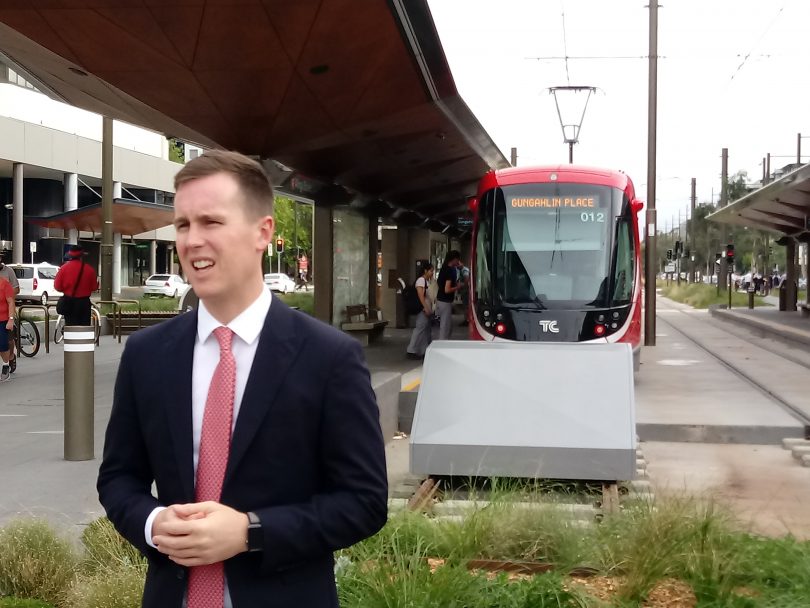
Transport Minister Chris Steel says he can’t reveal the full cost of Stage 2A while in negotiations with the Canberra Metro consortium.
But the prospect of the government doing any deals before the poll is looking dimmer after Mr Steel said the government would not be rushing to sign a contract before the election for political purposes.
The government was committed to getting the best value for money and it still hoped that construction would start in the first half of 2021.
”We are working with Canberra Metro and are well progressed in developing the project with environmental approvals underway, however we are being transparent with the community that there have been delays in signing the contracts due to the pandemic,” Mr Steel said.
Mr Steel said the pandemic had disrupted supply chains, including that for Austrian rails, and closed the light rail vehicle factory in Spain.
The closure of the Queensland border also created quarantine issues for workers having to travel back and forth between the two jurisdictions.
Mr Steel said a rail boom, both heavy and light, in Australia had led to a hot, competitive market for construction firms.
As a result, the government did not believe it to be the best time in this environment to be signing contracts.
But Mr Steel said the government was committed to taking light rail to the south side and only Labor could be trusted to do so.
”We’re happy for light rail to be front and centre of the election,” he said.
”The Canberra Liberals are not committed to this project despite the government continuing our unprecedented level of transparency by releasing the business case for 2A, and in 2018 releasing the cost guidance for Stage 2.
”What’s clear is they don’t support light rail, they never have.”
Asked whether the delay will push back Stage 2B to Woden, Mr Steel said it was subject to an extensive approvals process through the Commonwealth EPBC process, the NCA and approval by both houses of Parliament.
”Final control over time frames is with the Commonwealth,” he said.












